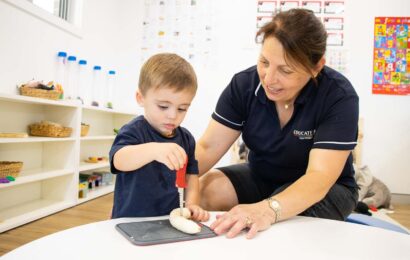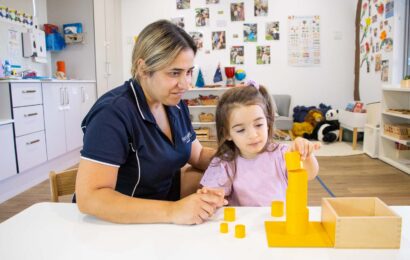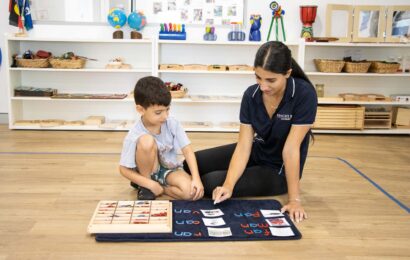Infant Program
The Montessori Infant Program offers a hands-on curriculum that emerges from children’s developmental needs and interests from birth to age two. Learning objectives for our infant community include developing language skills, concentration, movement skills, problem-solving, social skills, coordination, and independence.



